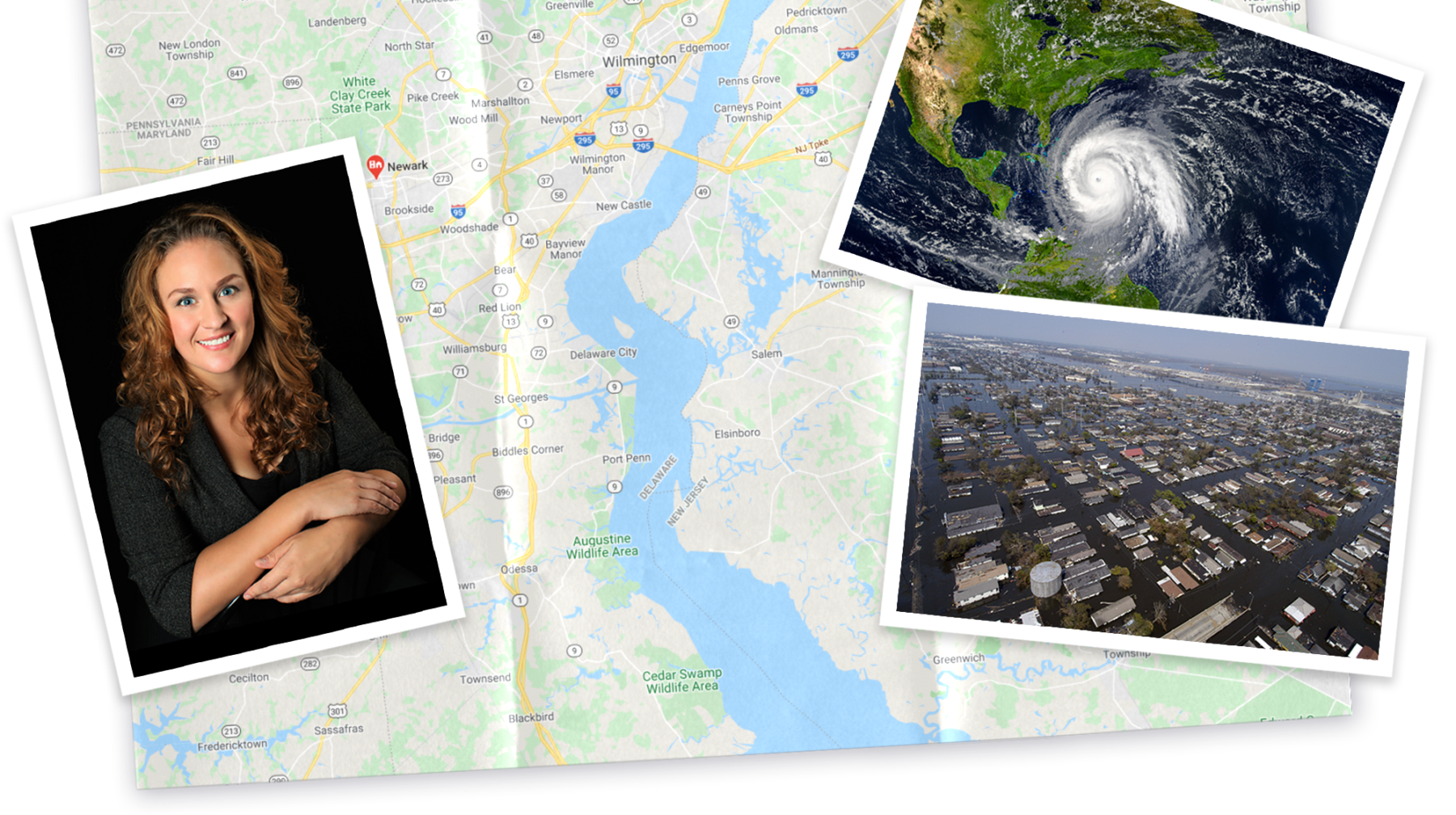
Siders is a social scientist and a lawyer, advocating for audacious climate adaptation that’s fair for everyone.
Photos courtesy of A. R. Siders and from Pixabay
Waves of progress
“Being uncertain doesn’t mean that we can’t address [the effects of climate change].”
A.R. Siders, A.B. ’07, J.D. ’10, who last year became assistant professor at Delaware University’s Disaster Research Center, thinks her newly adopted home state can act as an example of how climate change adaptations can be successfully implemented throughout the country.
“Because it’s a small state it has some real opportunities,” said Siders, whose career combines a law degree with a Ph.D. in environment and resources with the goal of finding climate solutions that can be transformed into workable policies.
“In Delaware, people in government know each other. They’re connected. We are all a maximum of an hour and a half away from a central point. You can have more cross-department collaborations. You can have more personal connections that help drive some of these projects forward.”
Those projects, happening not just in Delaware but nationally, involve three types of climate change adaptations — barriers (like seawalls), accommodations (like elevated roads), and managed retreat (like housing buyouts) — which each act in different ways to protect people and infrastructure from the issues that climate change precipitates, like rising tides and forest fires.
Siders explained that right now the Federal Emergency Management Agency (FEMA) and the Army Corps of Engineers are implementing these adaptations throughout the country in a patchwork method that involves very little collective planning and can ultimately waste time and resources.
As an example, Siders pointed to the interaction between seawalls and beach nourishment. “One of the best predictors of where we do beach nourishment,” the process of adding sand to an eroding beach, “is where we’ve already built seawalls. Someone builds a sea wall, and then the beach in front of it erodes away. So then we come back in and we beach nourish it.”
Her solution to dealing with a task so complex is to think of it in simpler terms. “I tend to think about this like dieting,” Siders said, explaining that a lot of us get the motivation to eat healthier because of some end goal we want to reach. “But along the way it’s not going to be fun and games. Along the way it’s going to be really hard work; it’s going to be eating lots of broccoli. But you do it because you can imagine that end outcome.”
Beyond needing a unified goal, Siders explained that a successful response to climate change also needs unified leadership.
“It would require more motivation than I think there is currently. I think a lot of people are aware, but … we need more leadership on this issue, we need more of a top-down directive to say, ‘This is the direction for Delaware, this is what Delaware needs to do.’”
She added hopefully that some institutions excel at forecasting and preparing for the unknown, including the U.S. Navy, where she spent time as a Presidential Management Fellow. “The military has no problem planning for an uncertain future. That’s all they do. They plan for the ‘what if.’ Being uncertain doesn’t mean that we can’t address [the effects of climate change]. It just means that there’s a different set of ways to approach it.”
Though her work can feel overwhelming and even grim, Siders emphasized that it’s important to stay positive.
“[Addressing climate change] a huge problem, but we can break off pieces that are manageable, and we can try exciting new things.”
Which is exactly what Siders is doing. Besides her ongoing research, Siders and Jola Ajibade of Portland State University are working on a book that collects perspectives on climate relocation from a variety of people, like poets, photographers, and landscape architects, as well as everyday citizens.
“At the moment it’s tentatively titled ‘Unheard Voices of Managed Retreat,’ Siders said. She hopes the book will help people look at climate adaptation from new angles.
This story is part of the To Serve Better series, exploring connections between Harvard and neighborhoods across the United States.




